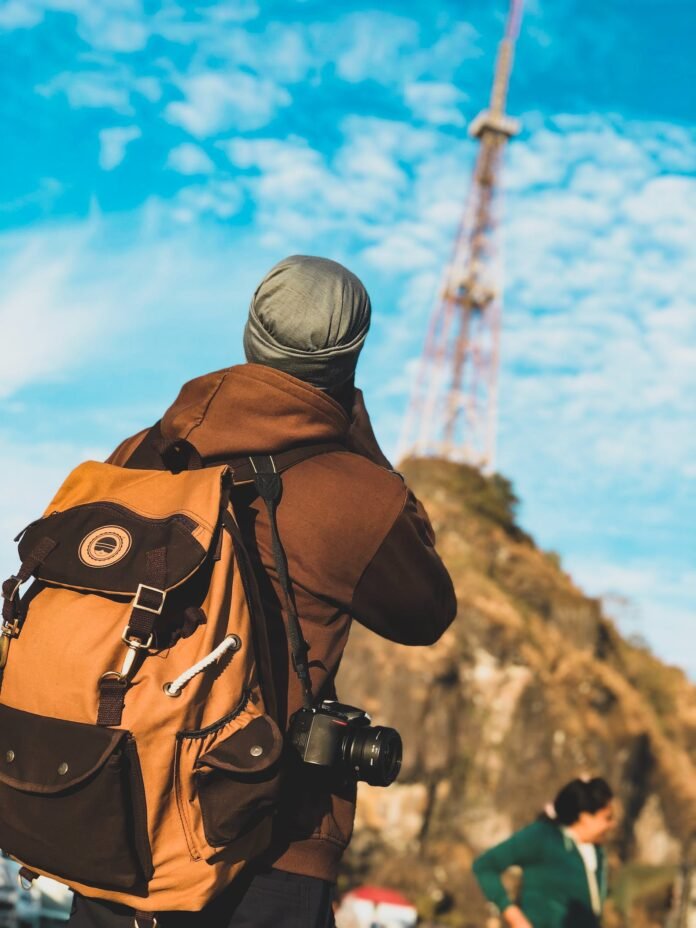Nothing ruins a vacation faster than an unexpected accident or incident. Whether it be a lost wallet or a missed flight, having to confront the unexpected can take the fun out of even the most well-planned getaway. Safety First! This article will share important travel safety tips for a secure and enjoyable trip. Read on for how you can protect yourself on the road.
1. Start Planning Early for Safe Travels
Traveling is one of the best ways to see the world and experience different cultures. But it can also be dangerous and stressful, so preparing ahead is important for keeping your travels safe and enjoyable. Here are a few tips to help you start planning early.
- Set a timeline. Decide on your travel dates and how long you will be staying. Knowing when to depart and when to come back home can help you plan out the rest of your trip, like accommodations and activities you’ll enjoy.
- Research the destination. Understand what you’re up against in terms of safety precautions, destinations and culture. Websites like the Foreign and Commonwealth Office (FCO) gives detailed information on any locations you intend to visit.
- Shop around for tickets. Compare prices online for the best options. Make sure you check the prices and amenities of the plane ticket prior to purchase to avoid any extra costs.
- Look at the bigger picture. Map out your route, choose destinations and plan what kind of transportation you’ll be using. Consider the weather in the places you’ll be visiting and the different types of food available to ensure you’re making the most of your time.
Don’t forget to check the visa requirements for each country you’ll be visiting. Be aware of the laws and regulations of each destination, and take out an appropriate insurance policy in case anything goes wrong. Above all, be sure to enjoy yourself and take in the sites on your travels.
2. Pack Smartly for Maximum Security
Packing the right items for a trip can mean the difference between safe travels and a total security risk. Knowing what to pack wisely and what not to bring can help travelers stay confident and safe.
- Leave Important Documents at Home: Passports, travel visas, driver’s license are items that should not be taken with you if they are not required for the trip. Store these in a safe and secure place to avoid potential risks.
- Take Copies of Necessary Items: If an item is necessary for a trip, consider taking a digital copy of it instead of the physical one. Stash this on a cloud, or secure a second copy with a family member.
- Limit Valuables: Expensive jewelry, cameras, and other items essential for a trip may not be necessary. These can even attract visitors unwanted attention from pickpockets and thieves. Unless these items are absolutely required, its best to leave them at home.
While packing, ensure all items are easily accessible to avoid long pauses at security screenings, and to make the boarding process smoother. Must-haves should be at the top of a bag and readily available, while incidentals should be at the bottom. Place important items like laptops in a separate bag to make them easier to grab.
When packing for a trip cross-country or overseas, make sure travel bags are not overloaded. Many countries, airlines and hotels have enforced stricter regulations on the weight of personal bags, so considering the size and weight of a bag before packing it is a must to avoid penalty fees.
3. Be alert and Staying Connected to Stay Secure
We often get busy in our lives and it’s easy to forget about our online security until something happens. But that’s not what needs to be done. It’s important that we are mindful and conscious of the security measures that are available and necessary to ensure the protection of our online activities. Here are some steps that you can take to stay alert and stay connected to stay secure:
- Set up multi-factor authentication: Two-factor authentication provides an additional layer of security for websites and online accounts. It requires both your password and another form of identity verification (e.g., a code sent to your mobile phone) to log in. By setting up two-factor authentication, you can ensure that only you have access to your accounts from any device.
- Keep your system updated: It is essential to always keep your system, both hardware and software, up to date. Software updates usually address security vulnerabilities or bugs that may have existed in the previous version. This means that by applying the updates, you are improving your system’s security.
- Be conscious of phishing: Be vigilant about any emails or messages you receive. Avoid clicking on suspicious links and don’t provide any confidential information if you don’t trust the source. It’s also important to be aware of potential phishing scams. Make sure to check the authenticity of any site and double check the URL address before entering your credentials.
And, lastly, it’s always a good idea to back up your files regularly. This helps to ensure that no data is lost in case of malware attacks, and it increases the chances of restoring the system to its previous state quickly.
These are just a few ways to be alert and stay connected while ensuring your data and files are secure. By taking some time to put these measures in place, you can make sure that you are staying safe and secure online.
4. Leave a Detailed Travel Plan Behind
A well thought out and detailed travel plan is essential in ensuring a stress-free and enjoyable trip. Before heading off to explore the world, here are a few tips that will help you leave behind an effective travel plan.
- Logistical Details: Don’t forget to leave behind details of when you are leaving, returning, important addresses and contacts, your rough travel route, and budget.
- Emergency Contact: Make sure someone spare back at home has your contact information. That way if any emergency does occur abroad, they can reach out to you.
- Contingency Plan: You should make a contingency plan in case of the unexpected. What would you do if you got stranded in a foreign country, faced an unforeseen health issue, or missed your flight?
- Phone Backup: Charge up your phone completely and make sure you leave your phone charger back at home. That way, you can keep your contacts updated and connected.
Also, try to get a local’s number, if you can. That way, you’ll have a friendly helping hand keeping a lookout if and when you need assistance.
The best way to leave a reliable travel plan behind is to download a travel app like WorldMate or TripIt, and update it regularly. These apps help you store everything from your flight details to car rental information, all in one place for easy access.
Lastly, ask your friends and family to be patient if you fall out of touch. Tell them beforehand that you’ll be travelling with limited network reception and assume they’ll wait to hear from you until you’re back.
As you plan your next trip, keep safety and security as top priorities. Using the tips above, you can travel with ease, knowing that you have taken the necessary steps to ensure a secure and enjoyable journey. Safe travels!





